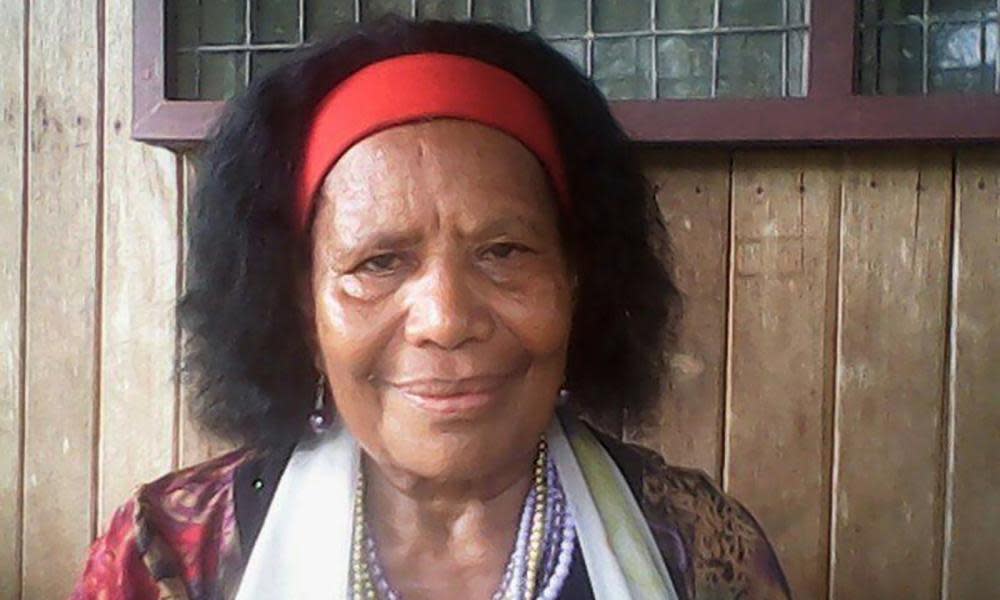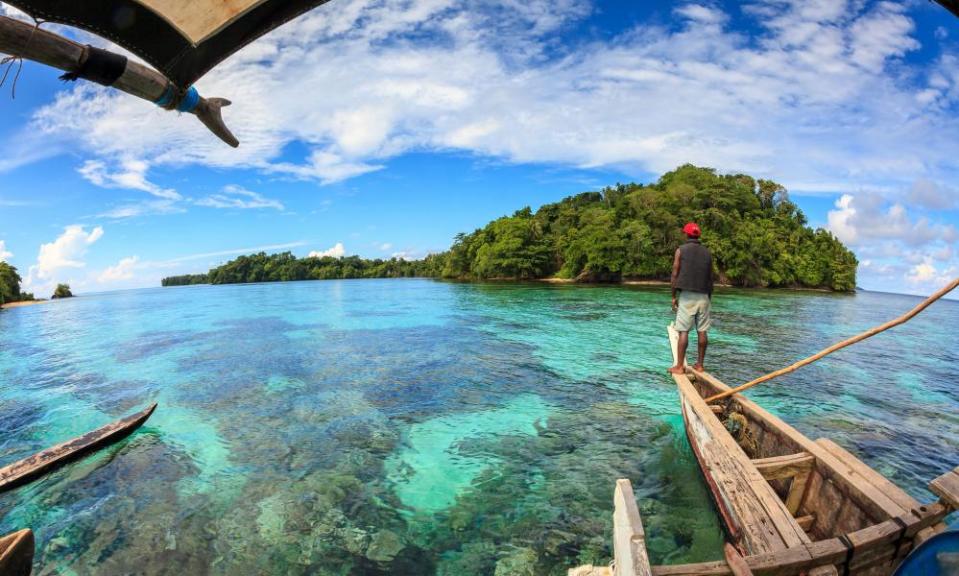'She set the benchmark': trailblazing PNG politician Nahau Rooney dies, aged 75

Hardworking, audacious, occasionally controversial, but always vivacious: one of Papua New Guinea’s political pioneers, Nahau Rooney, has been remembered as a trailblazer for PNG women in power following her death on 15 September, aged 75.
In 1977, Rooney was one of just three women elected to PNG’s first post-independence parliament – out of 109 members – where she served as the regional member for the province of Manus.
Rooney drew controversy during her early career when as minister for justice in 1979 she was sentenced by the supreme court to eight months in jail for interfering with the administration of justice over a tax case.
Related: Island of Niue considers travelling forward in time to catch up with New Zealand
Then prime minister, Sir Michael Somare, assumed the justice portfolio and overturned the decision immediately.
This early tussle for power between the executive and judiciary – narrowly over whether the judiciary had the right to review deportation decisions, but more broadly an assertion of power by a newly-independent government – led to most of PNG’s foreign judges resigning, and thus brought about the appointment of PNG’s first national judges.

Somare, PNG’s grand chief, described Rooney as a “wonderful woman”.
“She worked very hard for Papua New Guinea. I feel sorry for the Manus people especially her family. Manus has lost a great leader in Nahau.”
Elizabeth Cox, former UN women Pacific regional director, who has spent decades working with PNG women’s organisations, recalled Rooney as “an energetic member of the early post-independence governments that made genuine efforts to catalyse constitutional promises of equality, participation and a focus on rural development”.
“Sir Michael Somare believed in Nahau. Her female peers were inspired by her and she enjoyed the support of a loving husband, happy to let her shine while he worked hard at home in Manus.
“Nahau leaves us with an important legacy, one that challenges us all to do as much as she did to build a stronger women’s movement in PNG, to get more women into parliament and to make the voices of PNG’s post-independence daughters heard in the region and in the world.”
Rooney was a leading advocate for women to organise and raise their collective voice, a constant presence at conferences and workshops to encourage women’s participation in politics in PNG.
Climate change and its impact on the environment in her province Manus and elsewhere in PNG and the Pacific were among her many passions and worries as was the Manus regional processing centre.
“She was against destructive logging and fishing and, as early as 2001, protested the Australian government moves to make her beloved home a prison for asylum seekers,” Cox said.
Related: Portrait of a mentor: 'granddaddy' of National Art School campus finds himself the subject
PNG’s governor general, Sir Bob Dadae, paid tribute to Rooney as a pioneer.
“As the first female politician of our country soon after our independence, Rooney demonstrated early on to the womenfolk that women too can become politicians and be involved in decision making, a task that is, in our society, traditionally performed by the men,” Dadae said.
“She held various ministerial portfolios during her political career and was not one to hold back from freely expressing her opinion. She set the benchmark for women at a time when women’s role in society was relegated to the home and not in decision making for the nation as a politician and minister of state.
“To the people of Manus, Rooney demonstrated to the rest of the country the potential of what the women of Manus can achieve”, Dadae said.
Rooney was re-elected in 1982, becoming the only female member of that parliament, but lost her seat in 1987.
In the 2000s, retired from politics, her environmental and women’s rights activism continued, while she ran the family’s guest house on Manus Island. She also served as president of the National Council of Women, and on the Council of University of Papua New Guinea, where she had earlier studied social work.
In 2004, she ran, unsuccessfully, for the position of governor-general, which is nominated by a parliamentary vote.
In 2006, Rooney was honoured with the title of the Companion of the Order of the Star of Melanesia.
Rooney’s husband, Australian-born Wes Rooney, pre-deceased her, murdered on her home island of Manus. She is survived by her children, Kevin, Michelle, Poyap, Gabriel, Nawes, Eva, and many grandchildren and great-grandchildren.
This article first appeared on DevPolicy. You can read the original here.


